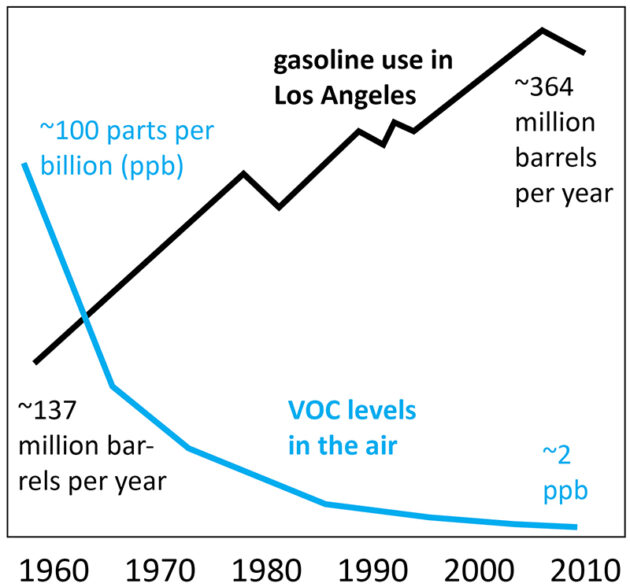Why won’t environmentalists admit how great things are?
By Lushington D. Brady
In an episode of their series Bullshit, magician-sceptics Penn and Teller make a confession of sorts: they show a photo of themselves at the first Earth Day in 1970. Back then, they say, they genuinely believed there was an environmental crisis that needed to be addressed.
But now? As Penn and Teller say, why is Earth Day a continuing, ever-more-dismal annual dirge-fest of doom and gloom, when the environment has improved remarkably?
Yes, that’s right: improved. I know that single statement is enough to make your average school-striking teenager’s head explode, but it’s a simple fact.
On almost every measure, the environment has improved remarkably in recent decades.
That doesn’t mean that we’re living in the sort of post-industrial Arcadia the Greens fantasize about, nor that environmental issues have all been solved and all is well with the world. Of course there are still problems. Ocean pollution and over-fishing, for example. Regional deforestation in the erstwhile Indies.
But, overall, the Earth has improved. More importantly, the dire predictions of the original Earth Day have all been spectacularly disproved.
The various predictions can be summed up by Pete Gunter, a Texas university professor. By the year 2000, he said, ‘the entire world – with the exception of Western Europe, North America and Australia – will be in famine.’ At the time, 34 per cent of the developing world was undernourished. Now, it’s 13 per cent. Rather than famine, we have lived through a golden era of poverty reduction even though world population has doubled. So what went right?
Should we all get down on our knees and thank the Watermelon left for saving the world with green socialism? Quite the opposite: the hero of the environment is big, bad capitalism.
MIT’s Andrew McAffee looks at this in his book More From Less. We’re learning to tread more lightly on the planet, he argues: instead of abandoning economic growth (as was advocated on 1970 Earth Day) we have done something more profound: uncoupled economic growth from the use of resources.
This is a little misleading. After all, the fundamental premise of economics is the distribution of scarce resources. Capitalist economies have learned to distribute scarce resources with such efficiency that we are literally making More From Less.
We have achieved what was seen to be impossible by the founding fathers of the environmentalist movement. I was struck by McAffee’s figures, but most are American and I wanted to see how far his argument applies to the UK. Some of the results are below. They’re unusual metrics, not ones you often see quoted. But they tell a very different story: about a world where things are good and getting better.
One success, at least in the developed capitalist economies of the West, is air-pollution. Places like communist China most especially, and recovering-socialist India, still have severe urban pollution. But anyone who remembers the yellow skies above cities like London, New York and even Melbourne in the 1970s should marvel at the clear skies of today. Even Los Angeles, the byword for smog, has seen its volatile organic compound levels in the air plummet from 100 ppb in the 1960s, to 2 ppb today — and that, even as gasoline use tripled.

Air is cleaner today than any time since the pre-industrial age…READ MORE (theBFD)

Get your copy from our Online Store or your local book and magazine retailer
Australian Retail Locations » Uncensored Publications Limited
New Zealand Retail Locations » Uncensored Publications Limited
As censorship heats up and free thought becomes an increasingly rare commodity, we appeal to our readers to support our efforts to reach people with information now being censored elsewhere. In the last few years, Uncensored has itself been censored, removed from the shelves of two of our biggest NZ retailers – Countdown Supermarkets and Whitcoulls Bookstores – accounting for 74% of our total NZ sales.
You can help keep the Free Press alive by subscribing and/or gifting a subscription to your friends and relatives.








